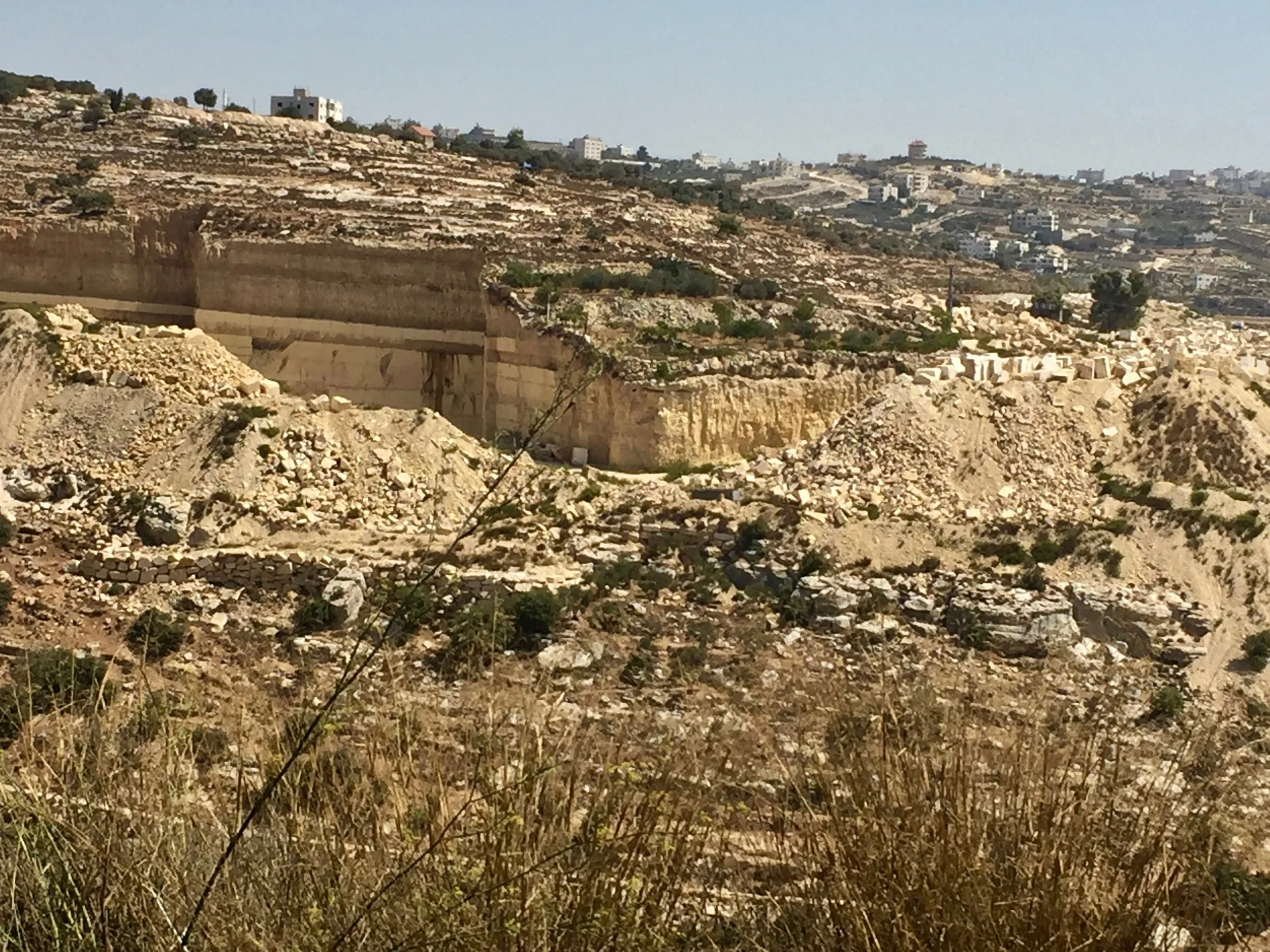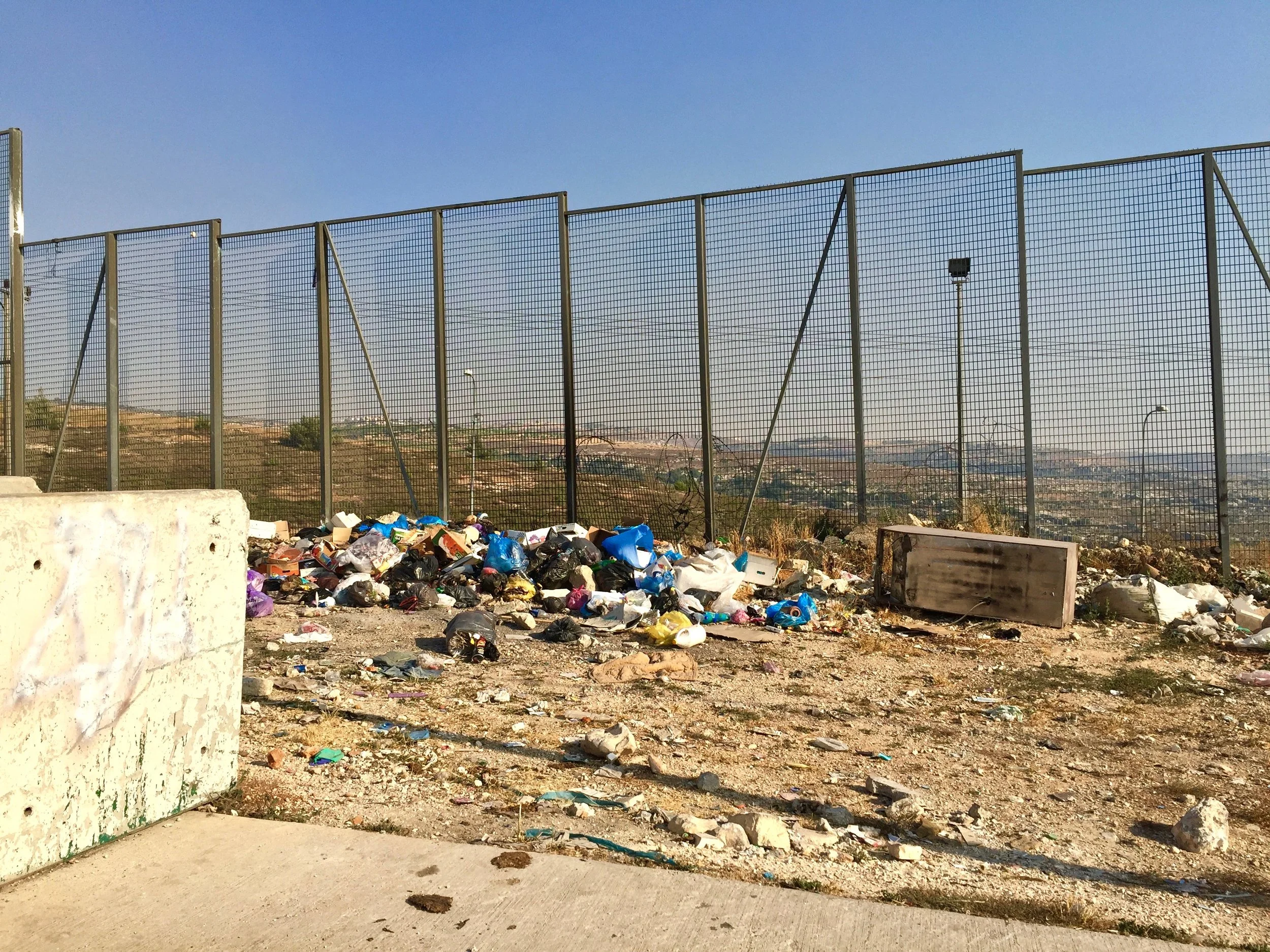Brutalized Holy Land
The way we treat land, and the ghosts of our land, is the way we will treat everything, including ourselves.
- Leaving Before the Rains Come, Alexandra Fuller
The land we walk contains our ancestors as well as the ghosts of our lives. Everything we eat, drink, touch, kill, or give birth to, everything we love and everything we fear – including ourselves, has lived and died countless times since the beginning of everything.
As a tactic of the Occupation, the Israeli army bulldozes Palestinian homes, infrastructure, and mature orchards. In Israel/Palestine, as in so many high-conflict places, including here in the U.S., the land has been brutalized and the waters polluted to the breaking point.
Bombers, snipers, and occupying armies, regardless of their ideology, wreak havoc on the environment. The land suffers as much or more than the people who live there. When the land is decimated, people inevitably suffer as well. As a colleague from Ivory Coast once observed, “Even the air is harmed by bullets!” Violence to the Earth during war is an aspect of conflict that is seldom discussed. But we can examine any conflict by observing how the natural world is faring, and multiply the challenges of peacemaking by the cost of repair – ecological, emotional, and financial. In times of conquest or war, concern for the environment or for our relationship with living systems isn’t even on the radar. And yet, ecological restoration as a medium of peacemaking is one of the most accessible, most profound, gateways to lasting peace. Hands in the Earth heals trauma and brings economic stability, leading to future security.
I used to think that peacemaking had to start with humans and move from there to making peace with the Earth and non-human life forms. But I learned that if you put it off, the day never comes when humans feel ready to turn their attention from their fear of other humans to healing their relationship with the land. Meanwhile, we expect her to continue to feed and sustain us.
For people teetering on the cusp of violence, people who fear for their lives, this shift in attention to focusing on Nature and our relationship with that which sustains us can seem like an unimaginable luxury. And yet, the relationship with the Earth is the one relationship that is guaranteed to heal us.
A beloved colleague, Ali Abu Awwad, is the founder of a Palestinian nonviolent peace movement. He often says, “I am a citizen of a country that does not exist!” meaning that, as a Palestinian he does not have the rights of citizenship in Israel nor does being a resident of the Occupied Territories guarantee any basic rights or protections. When he says this, he falls into a brooding silence. Grief and frustration shape his face as he says incredulously. “I have no vote. I have no rights. I cannot move about freely.” While Israeli settlers are allotted 160 liters of water per person per day, Palestinians are allotted only 40. Unfortunately, the Palestinian leadership does not consistently advocate with integrity on behalf of its citizens. Corruption is rife. The annual budget is out of kilter. For example, Agriculture receives only 1% of the total. People on both sides of the conflict (and, yes, ‘very fine people on both sides’) are fearful and angry. Ali looks up, takes a deep breath, and says, “But nonviolence is not a strategy. It is an identity.” This includes our identity as citizens of the Earth.

